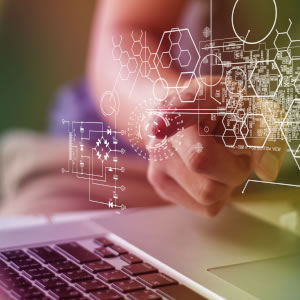Law firms will soon be forced to adapt to make way for an emerging risk that is set to shake up the traditional nature of legal practice, a partner has warned.
Speaking to Lawyers Weekly, Gilbert + Tobin partner Peter Leonard said the internet of things will give lawyers “no choice” but to change the way they deliver legal services to clients.
To continue reading the rest of this article, please log in.
Create free account to get unlimited news articles and more!
The internet of things (IoT) is a network of physical devices, vehicles and buildings that are embedded with electronic software, sensors and connectivity capabilities that enable them to collect and exchange data.
“The internet of things is the description that people are giving to the new use of the internet, to enable devices to talk to other devices,” Mr Leonard said.
“Typically, it will be a device which senses environmental conditions in a home or in an electricity or gas network. That sensor device sends information back to a data analytics platform or to a human carrying a smartphone, which then works out what decisions should be executed based on what the sensor is showing.
“There’s a wide range of internet of things starting to emerge, ranging from swimming pool management services, to services that help a farmer determine how much water to put where in a paddock, or how much fertiliser to use and so on.”
Mr Leonard said the IoT presents significant challenges to legal professionals.
“I think probably the main challenges are around privacy management, because many of the early IoT deployments have been devices which use personal information,” he said.
“The next range of issues starting to come through is around the legal liability for decisions that are made by machines, or using information collected through censored devices.
“One of the factors that make this area very complicated is that many of these new services will involve a number of providers working together …The IoT is really about interconnectivity of devices and decisions being made with minimal human intervention, so sometimes when things go wrong, they can go catastrophically wrong.”
Mr Leonard noted that, as with many digital disruptors, there is currently not enough governance around the IoT.
“Things can go wrong because certain information was either not received when it should’ve been received because some other device broke down, or because the information that was received was wrong because a human had put the device in the wrong place or had turned the device off,” he said.
“In essence, the problem is one that comes naturally with interconnectivity of a lot of devices doing things with minimal human intervention. It’s problems that arise through unclear delineation of who is responsible for what when this many parties are involved.”
Mr Leonard said a good example is autonomous cars.
“Let’s assume that an autonomous car is programmed to recognise something that looks like a human and to then make a decision to avoid that human, but as a result hits something that looks like a dog but is in reality a pram with a child,” he said.
“There are those kinds of difficult decisions that are inherent to the programming of many IoT services, and just how the law will deal with those issues is something that needs to be worked through.”
Despite these challenges, Mr Leonard said the IoT also presents unique opportunities to lawyers.
“The IoT is inevitable and will deliver us a huge range of benefits,” he said.
“It’s a question of getting the balance right and lawyers helping businesses to understand both the risks and opportunities so that consumer trust in the IoT can be built.”
Mr Leonard said while he expects lawyers who specialise in private litigation to feel the impact of the IoT the most, he anticipates all lawyers will eventually be affected.
“An area that will quickly emerge as an issue in the use of IoT data is private litigation,” he said.
“For example, if you put together mobile phone tracking information with Fitbit information, with toll device information, you can have a pretty complete view of the movements of an individual by vehicle and by foot and that might become quite powerful evidence in criminal proceedings, perhaps even in family law proceedings.
“So I think that lawyers will be coming across the IoT regardless of whether they’re technology lawyers or not, because the IoT will generate such a range and depth of information that will affect many areas of law.”
In conclusion, Mr Leonard said the IoT should not be feared by lawyers, but embraced.
“Much digital disruption in the legal profession is really around finding ways to deliver a more commoditised end of legal services so that the business of law can still be properly conducted but by a more efficient delivery of services at reduced costs,” he said.
“I think we will see the IoT increasingly disrupting other businesses that are not initially anticipated as disruptable.
“Legal disruptors are disrupting the legal profession but IoT might be used to disrupt it in ways that we can’t even anticipate today.”






